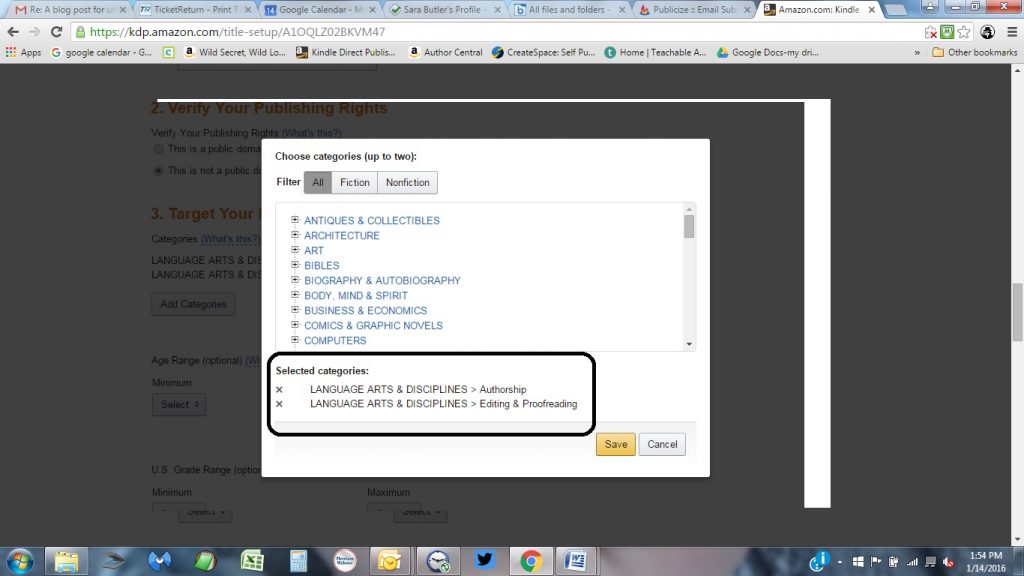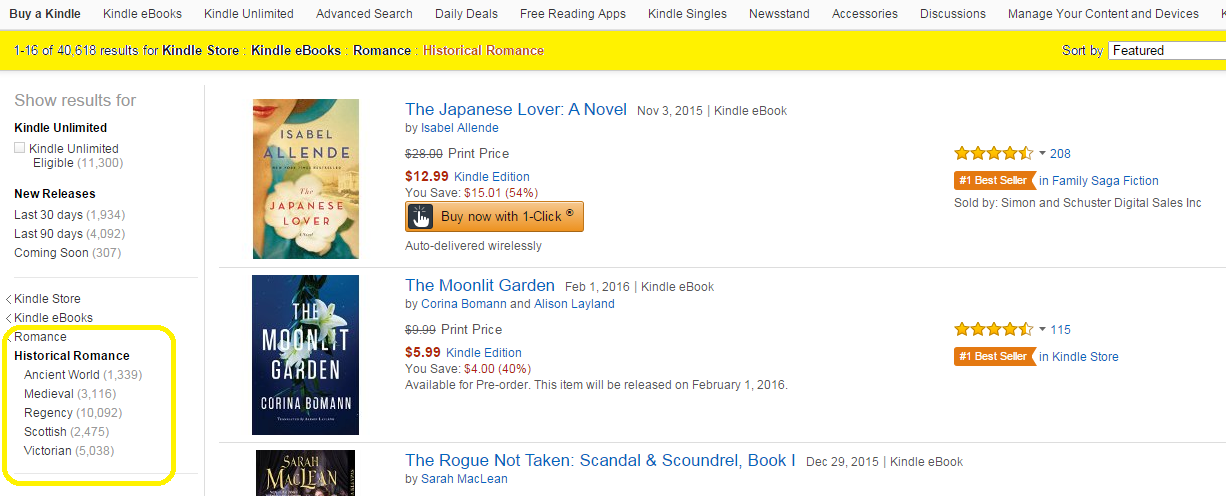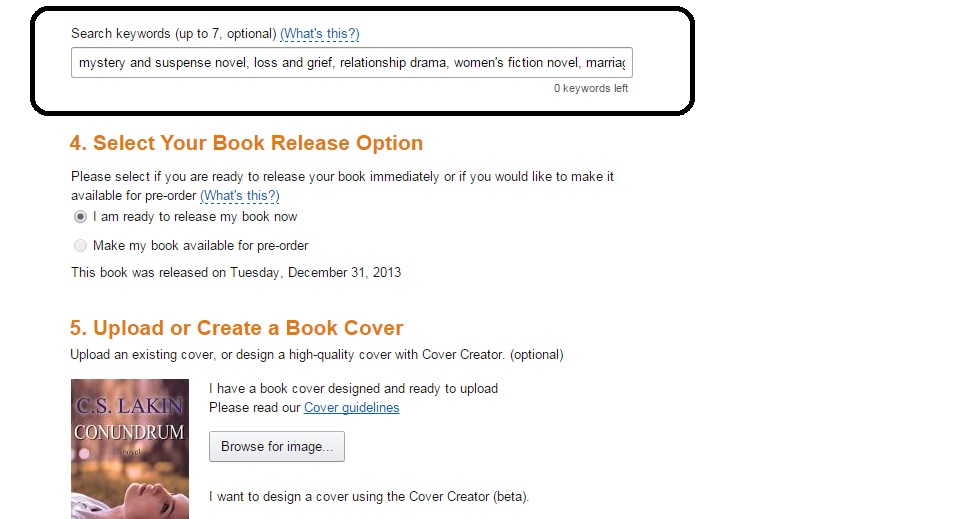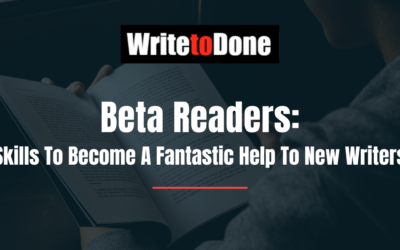If you yearn for success as an author, you need to take note.
Did you know that over four thousand books are self-published each day?
You can imagine how hard it is to have your book rise to the top of the pile.
Writers face a daunting challenge: discoverability.
Most books sell fewer than a hundred copies—ever.
So how can you give your book—whether fiction or nonfiction—a fighting chance?
The best way to sell books is to target genre.
What does this mean?
It means adjusting what you write or how you categorize what you write so that it neatly fits a slot; a slot that is clearly identifiable in the book publishing world.
I’ll explain why that’s important, but first let’s talk about genre.
What is Genre?
It’s a way to classify the type of book you are writing.
Since most authors achieve their greatest sales from Amazon, we’re going to look at how Amazon defines your books. (Other online venues use similar methods, so what works for Amazon generally carries over to other sites as well.)
Amazon uses the terms categories and subcategories. But it’s all genre—a way to define your book so that potential customers can find it.
Classifying your novel in a specific genre means you are targeting it to specific customers or readers who are looking for that kind of book to buy.
So it’s important to be able to not just state what genre your novel fits—but also to write to that audience, publishing a book that meets reader expectations.
BISAC Categories
When you upload your novel or nonfiction book to Amazon, you get to pick two categories to assign to it.
These are BISAC (Book Industry Standards and Communications) categories, used by the book-selling industry to help identify and group books by their subject matter.

These codes are used to properly “shelve” your title at retailers. Think of them as your subjects or genre listings for bookstores and libraries.
Like any product, your book needs to fit a category.
Writers often resist thinking of their book as a product, but it is.
And by positioning your “product” to fit a specific slot, you’ll have the best chances for discoverability.
Drilling down to the most specific and appropriate subject ensures your title will be placed in the best possible category on retailer sites. Not only will this help customers find what they want to read and bring your title to the forefront, it will also increase your title’s chances for higher rankings.
When you pick the BISAC codes for your novel, the first choice should be the one that fits best, as that’s the main or first one that will determine your book’s category. (Some sites only allow you to pick one.)
Be sure to pick two fiction categories that are specific.
(Don’t choose Fiction/Mystery/General and Fiction/Mystery/Detective, for example).
Subgenres are the Ticket
Within a genre, you’ll find subgenres—sometimes dozens of them.
In romance you have paranormal, YA, romantic suspense, historic romance, erotic, etc. There may be sub-subgenres under those. You could have YA paranormal romance, or Victorian historical romance. Each subgenre will have its own market, and supply and demand.
When you look at the genres listed on Amazon, you’ll see many subgenres listed on the side bar. You can click on these and note how many books are listed for that category in the search results. These are not the same as the Amazon bestseller lists. And they’re not the same thing as categories, which are general.

The more of those lists you can top, the more visible your book will be to potential customers. And by targeting genre, you’ll have a better chance at getting atop those lists than if you just tag your book with general keywords.
Note in the screen shot, there are 40,000+ results for historical romance at the time I wrote this post. But for the subgenre “holidays,” there are only 931. If you target this subgenre—so long as you see that many of these novels are selling well (ranking under 10,000 in the paid Amazon store overall)—you have a much better chance of being discovered, of having your novel come up at the top of the search results.
A ranking of about 10,000 equates to sales of about fifteen books a day. At $2.99 and a 70% royalty, an author can make about US$32 a day or $960 a month. (Use this handy calculator to estimate sales based on ranking.)
Aim for a Niche Genre with High Popularity and Light Competition
While this is a generalization, it should give you an idea of how targeting a specific niche can give you the best chance of big sales.
You can’t sell more books if no one can find you.
What you need is current data—real-time stats on which books are selling, what keywords they’re using, and what revenue they’ve generated in the last thirty days.
The best tool to use—which I feel is invaluable for authors of any type of book—is KDSPY. It is the only way to get real-time data, and it has a handy way of rating competition and popularity for any genre or keywords searched.
The keywords you input when you upload your book for publishing, and sprinkle throughout your product page, need to be specific and target your subgenre.

If you use only your general category for your keywords, you won’t get discovered.
If you list your book only under the genre Romance, or Mystery, or Thriller, you will be competing with hundreds of thousands of other books.
If you don’t specifically target a genre and a subgenre and list and market it online to target your niche market of readers, you won’t get discovered.
Discoverability is the key.
You can’t sell more books if you don’t get discovered, if your books don’t come up at the top of the search lists.
Fit into that Slot
You may not feel comfortable with the idea of categorizing your novel in one specific slot.
I resisted this for years. I wrote novels that crossed genres. My psychological mysteries were also women’s fiction or literary fiction.
This posed a serious problem for me. My many agents, who loved my books, complained how they couldn’t sell them because publishers couldn’t easily categorize them.
One of my novels was with Penguin’s publishing board for four months. My agent was sure they’d buy the novel, but they ended up turning it down.
Their reason?
The senior editor said, “We love her book, but we don’t know where to place it in our lineup. It just doesn’t fit anywhere.”
I wish I knew thirty years ago what I know now. I would have spared myself decades of misery and disappointment—if only I had known about targeting genre.
I wanted to write my books, in my style. I wasn’t willing to “compromise.” That’s how I saw it.
I didn’t look at my writing as producing a commodity for customers, and until I did, I could not sell my books.
I finally had to concede that the only way I was going to sell big with my novels was to target genre—write novels that fit in a very specific and easily identifiable genre. When I did that, I went from selling a few copies a month to sometimes, thousands.
Ask this about the book you are writing or considering writing:
- What genre am I writing in?
- Can I break down that category or genre any further?
- What possible subgenre can I target more specifically?
- How many books are competing in that category?
- Are very many of those books selling really well?
Picking your niche genre is the first step to writing a book that will fit just right and that your target readers will love.
And while there is much more involved in targeting genre, this is the first step to discoverability.
After all, you don’t want to sabotage your success as an author!
What are your thoughts about writing and marketing your book to fit a niche genre? Share in the comments, please.

















